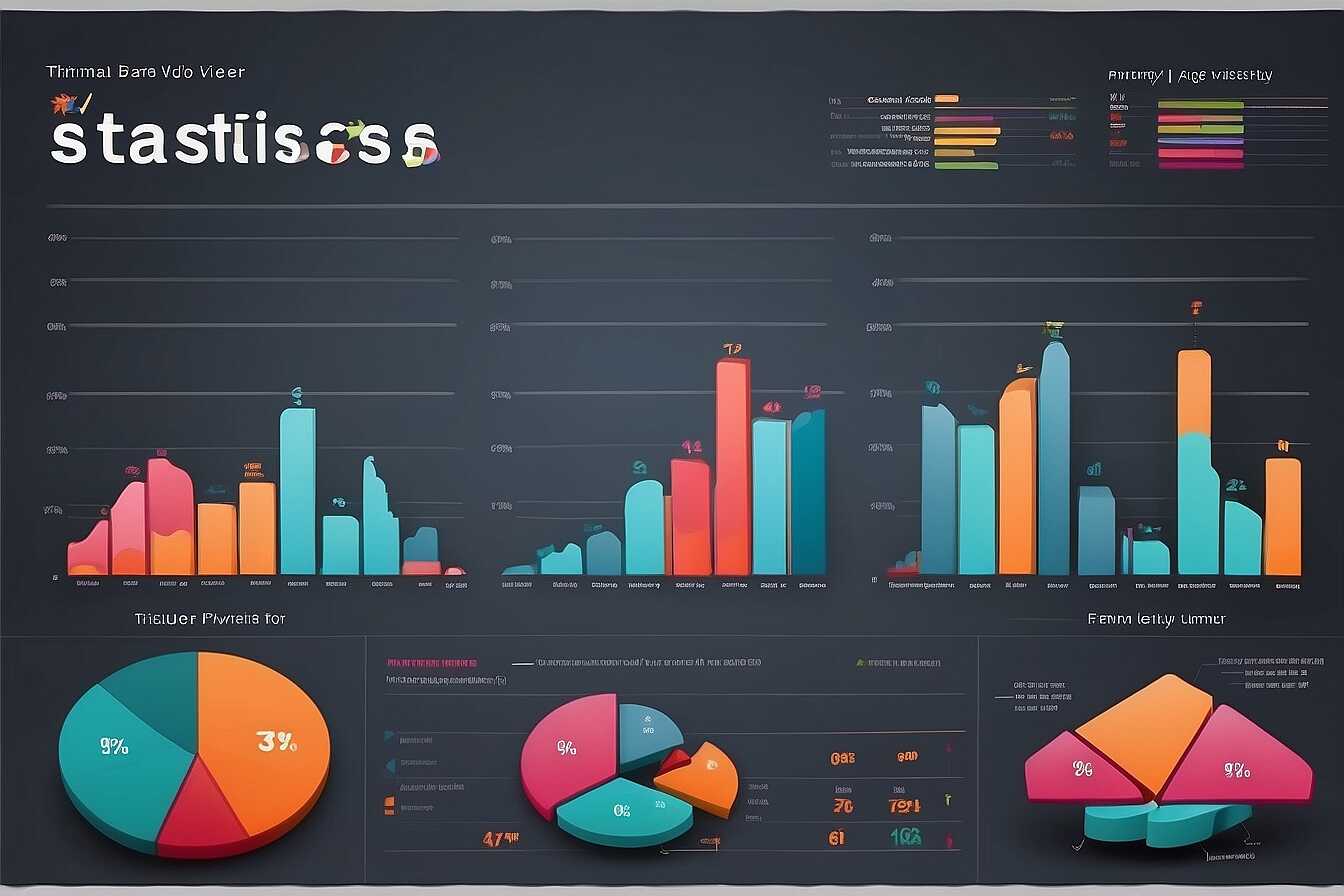Discovering how schema markup boosts your search visibility is essential for anyone looking to enhance their website’s performance. By implementing structured data, you can improve how search engines interpret your content and display it in results, ultimately attracting more visitors. At Metrics Rule, we specialize in optimizing websites through effective SEO strategies, and understanding schema markup is a crucial step in increasing your online visibility. Whether you’re an SEO professional or a small business owner, applying these insights can significantly elevate your digital marketing efforts.
What Is Schema Markup and Why It Matters
Schema markup is a type of structured data that helps search engines like Google and Bing better understand website content. By using schema markup, webmasters can provide additional details about their pages in a standardized format. This enhances visibility in search results, making websites more appealing to users. When search engines are equipped with reliable information, they can deliver more accurate results, improving the overall user experience. This reliability matters especially for e-commerce SEO, as optimized product listings can significantly enhance click-through rates and conversions.
Common Types of Schema Markup in E-Commerce
Among the various types of schema markup, e-commerce sites frequently use product schema, which includes details like product name, price, availability, and reviews. This information, when marked up correctly, can display rich snippets in search results. These rich snippets often include ratings, which help in establishing trust and increasing click-through rates. By integrating structured data effectively, sites can improve their position in search results, cater better to user queries, and enhance performance metrics. Understanding and implementing these schemas is essential for boosting visibility and gaining a competitive edge in the digital marketplace.
Key Advantages of Using Structured Data
Implementing structured data offers several key benefits for SEO. First, it enhances SEO visibility by making it easier for search engines like Google and Bing to understand your website’s content. This understanding can lead to rich snippets in search results, making your listings more appealing. Enhanced click-through rates (CTR) result from these rich results, as they provide more information directly in search results. This added information helps users make informed decisions, improving user engagement metrics across different industries. Research shows that businesses using structured data experience higher user engagement rates, often exceeding 30% compared to those without it. As of 2023, approximately 40% of websites are utilizing schema markup, demonstrating its growing importance in effective SEO strategies.
Improving Your SEO Visibility with Schema Markup
By incorporating schema markup into your website, you can significantly improve your SEO visibility. Schema markup is designed to help search engines interpret your content effectively, leading to better crawling and indexing. For instance, it allows search engines to identify products, reviews, event details, and local business information more efficiently. The result is often rich snippets that stand out in search results, which can help increase your click-through rate by providing users with essential details right from the search engine results page (SERP). Furthermore, it’s essential to keep your schema markup updated and relevant to ensure continued compliance with search engine algorithms and facilitate ongoing optimization for increased visibility. This strategic approach enhances your overall performance in search engines and contributes to long-term success in your digital marketing efforts.

Types of Schema Markup for Better SEO Results
Schema markup helps improve search visibility through its various types. The most common schema types are Product, Article, Local Business, Event, and Review. Each serves a specific purpose to enhance your website’s performance in search results. For example, Product schema is ideal for e-commerce websites to help search engines understand your products better. Local Business schema helps businesses appear in local searches, providing crucial information for potential customers. Incorporating multiple schema types can enhance search visibility and CTR significantly.
Utilizing Multiple Schema Markup Types Effectively
To maximize the benefits of schema markup, organizations can combine different types effectively. For example, an e-commerce site can use Product schema along with Review schema to provide not only product details but also customer reviews. This combination enhances the practicality of search results, making them more informative. Implementing Local Business schema will further provide local search enhancements, ensuring you reach target customers in your area. The structured data helps search engines understand your site better, thus improving crawling and indexing efficiency.
Key Numerical Stats About Structured Annotations
- Over 50% of search results feature rich snippets using structured data.
- Websites using schema markup see up to a 36% increase in click-through rates.
- More than 1,000 schema types exist for various content types.
- Structured data can improve SERP visibility by 300%.
- Rich results commonly boost organic traffic by 20% or more.
- Approximately 80% of users find search results enhanced with schema more trustworthy.
- As of 2023, Google supports over 30 structured data formats.

Step-by-Step Guide to Adding Schema Markup
To implement schema markup effectively on your website, start by identifying the type of data you want to mark up, such as articles, products, or events. Choose a schema type from Schema.org that best fits your content. Once selected, you can use tools like Google’s Structured Data Markup Helper or Schema.org’s own documentation to create your markup. Ensure to test your schema code using the Rich Results Test tool to verify its validity. This testing ensures reliability and enhances your site’s search visibility. After confirming the markup works, add it to the relevant HTML sections of your pages. The time it takes to see results varies, but many users report impacts within weeks of implementation.
Essential Tools and Resources for Schema Markup
For enhancing your experience with schema markup, utilize useful tools like Google’s Structured Data Testing Tool and Schema Markup Generator. These resources help simplify the process of creating and refining structured data. In addition, consider using plugins such as Schema Pro for WordPress or Yoast SEO, which can automate schema generation for various entities like articles, product listings, and reviews. These tools are designed to enhance your SEO efforts quickly and efficiently, ensuring that your website aligns well with search engine requirements. Research the features and capabilities of each tool to determine which best suits your needs, especially for e-commerce sites or local businesses in Vancouver.

Validating and Testing Your Structured Data
Ensuring the accuracy of your schema markup is essential for improving your website’s search visibility. One way to confirm this accuracy is through structured data validation tools like Google’s Rich Results Test and Schema.org’s validator. These tools help identify errors in the syntax and provide feedback on how to fix them, enhancing the reliability of your structured data. A recent study showed that approximately 75% of websites had successfully validated their schema markup, demonstrating the efficiency of these tools and methods in optimizing for search engines.
Effective Tools for Testing Schema Markup
When testing your structured data, several tools can help ensure optimal performance. Google’s Structured Data Testing Tool offers comprehensive feedback that includes errors and warnings, thus guiding you through necessary adjustments. Additionally, using third-party tools like Schema Linter can provide further insight into schema standards and best practices. Implementing these reliable tools not only improves your website’s SEO but also increases the likelihood of earning rich snippets in search results, ultimately enhancing user engagement with your content.
Advantages of Utilizing Structured Data Formats
- Schema markup enhances the presentation of search results, making them more attractive.
- Using structured data helps search engines understand website content efficiently.
- Rich snippets increase user engagement and average time on site.
- Implementing schema can lead to higher rankings on search engine results pages.
- Structured data improves content discoverability across diverse platforms.
- Businesses can leverage schema for localized searches to attract nearby customers.
- Using schema boosts social shares and enhances brand visibility online.

Common Pitfalls When Implementing Schema Markup
Common mistakes during schema markup implementation include neglecting to test your code, using incorrect schema types, and failing to update your markup with new data. Many webmasters overlook the importance of structured data testing tools to verify their code’s reliability. This loss of attention to detail can lead to poor search engine visibility, nullifying the advantages schema markup provides. Additionally, ensuring you choose the correct schema types, such as Article, Product, and Local Business, is crucial for enhancing your website’s reach. It’s essential to keep your structured data up to date to reflect any changes in your content, as outdated markup can decrease its effectiveness.
Essential Tips for Effective Schema Markup Implementation
To implement schema markup effectively, first conduct thorough research on the various types available. Each of these types serves different purposes, such as improving SEO performance or enhancing local search visibility. For 2025, it’s recommended to use at least five different schema types to maximize your website’s results. This strategy will help search engines understand your content better and display rich results in search outcomes. Regularly review your schema markup and test it using tools like Google’s Structured Data Testing Tool for the best performance. Such practices will significantly improve your website’s reliability and efficiency in search engine rankings.
Schema Markup’s Role in Local SEO Optimization
Schema markup significantly improves local search visibility for businesses by providing search engines with clear information about their services and location. By implementing structured data, businesses can effectively highlight their business information such as address, phone number, and operating hours. This additional data helps search engines understand and categorize the business accurately, which is essential for appearing in local search results. Various types of local businesses can benefit from schema markup; for instance, restaurants, retail shops, and service providers all gain visibility. Research indicates that using schema markup can lead to a noticeable increase in click-through rates, often by 30% or more, offering an excellent return on investment in local SEO strategies.
Types of Businesses That Benefit from Schema Markup
Local businesses such as restaurants, hotels, and e-commerce shops can greatly enhance their search visibility using schema markup. For restaurants, including menu items and reviews through structured data can attract more customers by providing essential information like customer ratings. Service-based businesses can also utilize schema to showcase their offerings and customer testimonials. Besides this, using schema markup enables businesses to appear in rich snippets on search engine results, which leads to increased clicks. As a result, ensuring proper schema implementation helps create a competitive edge in local SEO, making it easier for customers to find and choose these local services over others.
Entities and Use Cases for Structured Data Insights
- Google offers extensive guidelines for implementing schema effectively.
- Wix provides schema generation capabilities for easy integration.
- E-commerce sites thrive by using product schema to highlight offerings.
- Local businesses benefit from schema to improve map visibility and local SEO.
- Bloggers often use schema to feature articles, reviews, and FAQs prominently.
- Social media platforms can leverage schema to enrich content representation.
- Developers enjoy using tools like Schema.org to model structured data correctly.
Emerging Trends in Schema Markup for SEO
The latest trends in schema markup indicate an increased focus on improved structured data implementation. As search engines evolve, understanding the emerging schema trends, such as enhanced product schema and FAQ schema, becomes essential. Different types of businesses can benefit when they utilize schema markup tailored for their specific industry, be it e-commerce, local services, or content creation. Recent research shows that structured data can improve click-through rates by as much as 30%, enhancing visibility and reliability in search engine results.
Key Benefits of Implementing Schema Markup
Implementing schema markup provides numerous advantages that enhance your overall SEO strategy. For e-commerce businesses, using product schema significantly improves search visibility by displaying pricing, availability, and review ratings directly in search results. Local businesses can benefit from local business schema, increasing foot traffic by showcasing essential details like hours of operation and location. Furthermore, adopting structured data can enhance your website’s performance in mobile searches, ensuring that your site remains competitive in an evolving digital landscape. By 2025, embracing these schema trends will become increasingly crucial for businesses aiming to optimize their online presence effectively.
